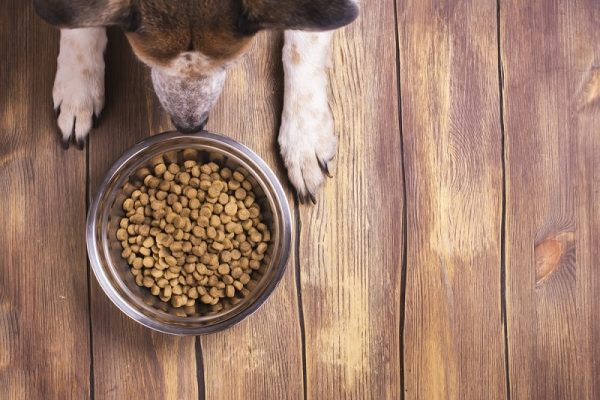As a dog owner, one of your responsibilities is to observe your dog’s body language and behavior regularly. If you have noticed your French Bulldog is shaking, it could indicate that something minor is causing your dog discomfort, and in some cases, it can be more severe and will need veterinary attention.
There are a few possible reasons for French Bulldog shaking that we will look at, as well as how to remedy the problem.

The 8 Reasons Your French Bulldog May Be Shaking
1. Cold Weather
Cold weather is a leading cause of shaking in your French Bulldog, and body tremors help with thermoregulation.1 Because of their small size and short fur that isn’t the most insulating, French Bulldogs may not be able to maintain optimal body temperature like larger, thicker-haired dogs during the winter. You can tell if your dog is cold by gently touching the inside of its ear.
How to remedy: If you take your Frenchie outside in winter, it is important to dress them in warm, protective clothing. Turn up the heat in your home, and make sure your dog’s bed is warm and cozy. You can also cover your pet with a blanket to keep them warm.

2. Distemper
Distemper is a highly contagious infectious viral disease that can affect a dog’s respiratory, gastrointestinal (GI), and nervous systems. Symptoms include shaking, ocular and nasal, coughing, vomiting, loss of appetite, depression, and even death. It is incredibly important to vaccinate your Frenchie for this, and in fact, it is one of the core vaccines that is included in its initial puppy vaccines.
How to remedy: Due to the extreme nature of this disease and high fatality in puppies, the most important treatment is prevention. That said, should your Frenchie test positive for the distemper virus, they will require isolation from all other animals, oxygen therapy, antibiotics for possible secondary pneumonia, and hospitalization during the viral shedding period. The moral of the story here is to vaccinate your dog for this disease!
3. Happiness and Excitement
Shaking can also be a symptom of excitement. You may have noticed your dog gets shaky when you arrive home or when it’s time for their daily walk, playtime, or meal time.
How to remedy: If shaking occurs due to overstimulation, sit with your dog and allow it to calm down. If you remain relaxed, your dog will be more likely to sit still until the shaking stops.

4. Poisoning
Poisoning can occur when your dog comes into physical contact with harmful substances such as fertilizer, prescription drugs, rodent poison, or cleaning agents. Some flea and tick medications are toxic to dogs, and they may experience body tremors and seizures if they are used. Other symptoms include vomiting, bloody urine, loss of appetite, abdominal pain, and lethargy.
How to remedy: Most importantly, do not induce vomiting if your dog is unconscious, having difficulty breathing, or showing signs of severe distress or shock. If your dog ingests household cleaners or other chemicals, do not induce vomiting since it could cause further damage. It is imperative to contact poison control and your veterinarian immediately.
5. Old Age
Just like humans, old age can cause your dog to shake. Some old-age-related shaking is to be expected, and it may be due to joint pain. In older dogs, cartilage loss and muscle atrophy are common health problems.
How to remedy: Your French Bulldog should be exercised less frequently as a senior. Consider joint supplements, pain medication, and muscle relaxants as needed and based on your vet’s advice. If your pet is over the age of 12, symptoms like shaking do not always mean a visit to the vet; sometimes all they need is a blanket or to snuggle close to you.

6. Stress and Anxiety
Because French bulldogs are companion breeds, being alone can make them feel forlorn and stressed. They enjoy being around people and are involved in their family members’ activities. Some suffer a degree of separation anxiety more than others.
Many things can make a dog nervous, including car rides, vet visits, and loud noises like the sound of a storm. When the dog shakes because of a noise, it usually goes away when the sound disappears.
How to remedy: You can help your Frenchie by ensuring it is in a quiet room with its favorite bed and toys. It is essential for you to remain calm, and hopefully, your canine companion will follow suit! You can help distract and comfort your pup by playing and petting. If you suspect your dog is shaking because of anxiety or fear, speaking with a veterinary behaviorist can be helpful.
If you need to speak with a vet but can't get to one, head over to PangoVet. It's our online service where you can talk to a vet online and get the advice you need for your pet — all at an affordable price!

7. Hypoglycemia
A dog with hypoglycemia has low blood sugar. Along with shaking or shivering, symptoms include: loss of appetite or increased hunger, blurred vision, confusion, low energy, seizures, and heart palpitations
How to remedy: One way to control hypoglycemia and prevent recurrences is through diet and medical management, depending on the underlying cause. Prevention, as well as being prepared should the condition arise, are the most important steps you can take to maintain your dog’s health. Early symptoms can be alleviated by consuming glucose or sugar in any form.
However, intravenous dextrose or glucagon could be required if oral administration of a sugary substance is not possible. A veterinarian must identify and treat the underlying cause to prevent recurrent hypoglycemia.
8. Addison’s Disease
Addison’s disease in dogs is an endocrine disorder that causes shaking, lethargy, and vomiting, among other symptoms. It occurs when your dog’s adrenal glands fail to produce enough corticosteroids.
How to remedy: Fortunately, Addison’s Disease is manageable. However, you will need to seek medical attention from a veterinarian.

What Should You Do If Your French Bulldog Is Shaking?
The first thing you need to do is identify the possible cause of your Frenchie’s shaking. Calming your dog down when it is shaking can help you determine the trigger and eliminate it. Consider what your dog has eaten, if there was a loud noise, or if you have recently given your dog medication. Keep your dog warm and hydrated. You should also report any other symptoms and consult with your vet if you are concerned.

Final Thoughts
There are several possible reasons for French Bulldog shaking, and most of the time, it is no reason for concern. It is crucial to understand all the possible causes to ensure that nothing is overlooked. If your dog is cold or anxious and stressed, you can easily remedy it with comfort and warm cuddles, but if you suspect anything more serious, contact a vet right away.
See Also:
- Pug vs Bulldog: Differences Explained (With Pictures)
- How Big Does a Pug Get (With Weight & Growth Chart)
Featured Image Credit: Firn, Shutterstock























